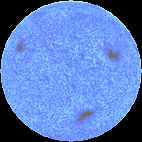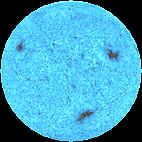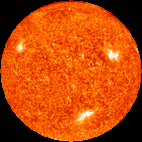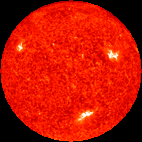
|
|
Overview
This section contains list of various topics
for all departments.
We the intelligent life-forms of the United Federation of Planets determined :
To save succeeding generations from the
scourge of intra-galactic war which has brought untold horror and
suffering to our planetary social systems, and
To reaffirm faith in the fundamental intelligent life-form rights, in
the dignity and worth of the intelligent life-form person, to the equal
rights of male and female and of planetary social systems large and
small, and
To establish conditions under which justice and mutual respect for the
obligations arising from treaties and other sources of interplanetary
law can be maintained, and
To promote social progress and better standards of life in larger
freedom,
And to these ends to practice benevolent tolerance and live together in peace with one another as Good Neighbors, and :
To unite our strength to maintain
intra-galactic peace and security, and
To ensure by the acceptance of principles and the institution of methods
that armed force shall not be used except in the common defense, and
To employ intra-galactic machinery for the promotion of the economic and
social advancement of all intelligent life-forms,
Have resolved to combine our efforts to accomplish these aims.
Accordingly, the respective social systems, through representatives assembled on the planet Babel, who have exhibited their full powers to be in good and due form, have agreed to these Articles of Federation of the United Federation of Planets, and do hereby establish an interplanetary organization to be known as the United Federation of Planets.
Chapter 1
Purposes and Principles
Article 1
The purposes of the United Federation of Planets are:
To maintain interplanetary peace and security within the treaty exploration territory, and to that end : to take effective collective measures for the prevention of threats to the peace, the suppression of acts of aggression, and to bring about by peaceful means, and employing the principles of justice and intra-galactic law, adjustment or settlement of interplanetary disputes which might lead to a breach of the peace;
To develop friendly relations among planets based on respect for the principles of equal rights and self-determination of intelligent life-forms, and to other appropriate measures to strengthen universal peace;
To achieve interplanetary cooperation in solving intra-galactic problems of economic, social, cultural, or humanitarian character; in promoting and encouraging respect for intelligent life-form rights; and for fundamental freedoms for all without distinction as to culture, sex, life-form, or religious belief; and
To be a centre for concilience of the actions of all social systems in the attainment of these common ends.
Article 2
The Federation and its members, in pursuit of the purposes stated, shall act in accordance with the following principles:
The Federation is based on the sovereign equality of all its members;
In order to ensure to all of them equal rights and benefits resulting from membership, all members shall fulfil in good faith the obligations assumed by them in accordance with These Articles of Federation;
All members shall settle their interplanetary disputes by peaceful means in such manner that intra-galactic peace, security, and justice, are not endangered;
In all interplanetary relations, all members shall refrain from the threat, or use, of force against the territorial integrity or political independence of any planetary social system, or in any manner inconsistent with the purposes of the United Federation;
All members shall give the United Federation every assistance in any action taken in accordance with These Articles of Federation, and shall refrain from assisting any planetary social system against which the Federation is taking preventive or enforcement action;
The United Federation shall ensure that planetary social systems which are not members of the Federation act in accordance with these principles as necessary for the maintenance of intra-galactic peace and security;
Nothing within these Articles of Federation shall authorize the Federation to intervene in matters which are essentially the domestic jurisdiction of any planetary social system, or shall require the members to submit such matters to settlement under these Articles of Federation; but this principle shall not prejudice the application of enforcement measures under Chapter VII.
Chapter II:
Membership
Article 3
The original members of the United Federation of Planets shall be those planetary social systems which, having participated in the interplanetary conference on interplanetary Federation at Babel, or having previously signed the declaration of the United Federation of Planets of stardate 0963, sign These Articles of Federation and ratify them in accordance with Article 110.
Article 4
Membership in the United Federation is open to any other peaceful planetary social systems which accept the obligations contained in These Articles of Federation and, in the judgment of the Federation, are capable and willing to carry out these obligations;
The admission of any such planetary social system to membership in the United Federation of Planets is contingent upon the decision of the supreme assembly upon recommendation of the Federation council.
Article 5
The Supreme Assembly may suspend the rights and privileges of membership of any member of the United Federation against which the Federation council has taken preventive or enforcement action. The Federation council may restore these rights and privileges of membership at its discretion;
Article 6
Any member of the United Federation which has persistently violated the purposes and principles contained in these Articles of Federation may be expelled from the Federation by the Supreme Assembly upon the recommendation of the Federation council.
Chapter III:
Agencies
Article 7
There are established as the principle agencies of the United Federation of Planets: a Supreme Assembly, a Federation Council, an economic and social council, a trusteeship council, an interplanetary supreme court of justice, a Star Fleet combined peace-keeping force, and a Secretariat;
Such subsidiary agencies as may be deemed necessary from time to time may be established in accordance with these Articles of Federation;
Article 8
The United Federation shall place no restriction on the eligibility of male and female life-forms or any member planetary social system to participate in any capacity under conditions of equality in its principal and subsidiary agencies.
Chapter IV:
The Supreme Assembly
Article 9
Composition
The Supreme Assembly shall consist of all the members of the United Federation of Planets. Each member shall be entitled to have not more than five (5) representatives in this body;
Functions and Powers
Article 10
The Supreme Assembly may discuss any questions on any matters within the scope of these Articles of Federation or relating to the powers and functions of any agencies provided for in these Articles of Federation and, except as provided in Article 12, may make recommendations to the members and the Federation Council or both on any such questions or matters;
Article 11
The Supreme Assembly may consider the general principles of cooperation in maintaining interplanetary peace and security, including disarmament and the regulation of armaments, and may make recommendations with regard to such principles to the members or the Federation Council or to both;
The Supreme Assembly may discuss any questions relative to the maintenance of intra-galactic peace and security put to it by any member or the Federation council, or a non-member planetary social system in accordance with Article 25 Paragraph 2 and, except as provided in Article 12, may make recommendations with regard to any such questions to the members, the Federation Council, or the pleading planetary social system, or to all of them. Any such question on which action is necessary shall be referred to the Federation Council by the supreme assembly either before or after discussion;
The Supreme Assembly may call situations which are likely to endanger the interplanetary and intra-galactic peace and security to the attention of the Federation Council;
The powers of the Supreme Assembly as set forth in this Article shall not limit the scope of Article 10;
Article 12
Where the Federation Council is executing the functions assigned to it under these Articles of Federation with respect to any dispute or situation, the Supreme Assembly shall make no recommendation with regard to that dispute or situation unless so requested by the Federation Council;
The Supreme-secretariat, with the consent of the Federation Council, shall notify the Supreme Assembly at each session of any matters relating to the maintenance of interplanetary peace and security which are under discussion in the Federation Council, and shall notify the Supreme Assembly, or the members if the Supreme Assembly is not in session, immediately when the Federation Council completes its deliberations on any such matters;
Article 13
The Supreme Assembly shall initiate studies and make recommendations for the purpose of:
Promoting interplanetary co-operation in political fields and encouraging the progressive development of interplanetary law and its codification;
Promoting interplanetary co-operation in the economic, social, cultural, educational, and health fields, and assisting in the realization of intelligent life-form rights and fundamental freedoms for all without distinction as to culture, sex, language, or religion;
The further responsibilities, functions, and powers of the supreme assembly with respect to matters mentioned in Paragraph 1(B) above are set forth in Chapters IX and X;
Article 14
Subject to the provisions of Article 12, the Supreme Assembly may recommend measures for the peaceful adjustment of any situation, regardless of origin, which it deems likely to impair the general welfare or friendly relations among the planets, including situations resulting from violations of the provisions of these Articles of Federation setting forth the purposes and principles of the United Federation of Planets;
Article 15
The Supreme Assembly shall receive and consider regular and special reports from the Federation Council; which reports shall include an account of the measures that the Federation Council has decided upon or taken to maintain interplanetary peace and security;
The Supreme Assembly shall receive and consider reports from the other agencies of the united Federation on agreed upon regular periods or reporting;
Article 16
The Supreme Assembly shall perform such functions of intra-galactic trusteeship as are assigned to it under Chapters XII and XIII, including the approval of the trusteeship agreements for areas which are not designated as strategic;
Article 17
The Supreme Assembly shall consider and approve the budget of the United Federation of Planets;
The expenses of the United Federation of Planets shall be borne by the members as apportioned by the Supreme Assembly;
The Supreme Assembly shall consider and approve any financial and budgetary agreements with specialized agencies referred to in Article 57 and shall examine the administrative budgets of such specialized agencies with a view to making recommendations to the agencies concerned;
All budgets of, and expenses of the United Federation shall be made and paid in the common interplanetary credit. The common interplanetary credit shall be the official medium of exchange within the united Federation treaty exploration territory;
Voting
Article 18
Each member of the Supreme Assembly shall have one vote;
Decisions of the Supreme Assembly on important questions shall be made on a two-thirds (2/3) majority vote of the members present and voting. These questions shall include: recommendations with respect to the maintenance of interplanetary peace and security; the election of non-permanent members to the Federation Council; the election of members of the trusteeship council in accordance with Paragraph 1(C) of Article 86; the admission of new members to the Federation; the suspension of the rights and privileges of membership; the expulsion of members; questions relating to the operation of the trusteeship system; and budgetary questions;
Decisions on other questions, including the determination of additional categories of questions to be decided by a two-thirds (2/3) majority, shall be made by a majority vote of the members present and voting;
Article 19
A member of the United Federation which is in arrears in the payment of its financial obligations to the Federation shall have no vote in the Supreme Assembly if the amount it is in arrears equals or exceeds the amount of the contributions due from it for the preceding two accounting periods. The Supreme Assembly may, nevertheless, permit such a member to vote if it is satisfied that the failure to pay is due to conditions beyond the control of the member.
Procedure
Article 20
The Supreme Assembly shall meet in regular periodic sessions and in such special sessions as occasion may require. Special sessions shall be convoked by the Supreme-secretariat at the request of the Federation Council or of a majority of the members of the United Federation;
Article 21
The Supreme Assembly shall adopt its own rules of procedure. It shall elect its president for each session;
Article 22
The Supreme Assembly may establish such subsidiary agencies as it deems necessary for the performance of its functions.
Chapter V:
The Federation Council
Article 23
Composition
The Federation Council shall consist of eleven (11) members of the United Federation. The United Nations of the planet Earth, the Planetary Confederation of 40 Eridani, the United Planets of 61 Cygni, the Star Empire of Epsilon Indii, and the Alpha Centauri Concordium of Planets shall be permanent members of the Federation Council. The Supreme Assembly shall elect six (6) other members of the United Federation to be non-permanent members of the Federation Council, due regard being especially paid, in the first instance, to the contribution of the members to the United Federation to the maintenance of interplanetary peace and security and to the other purposes of the Federation, and also to equitable geo-galactic distribution;
The non permanent members of the Federation Council shall be elected for a term of two (2) session periods. In the first election of non-permanent members, however, three (3) shall be elected for a term of one (1) session period. A retiring member shall not be eligible for immediate re-election;
Functions and Powers
Article 24
In order to assure prompt and effective action by the United Federation of Planets, its members confer on the Federation Council primary responsibility for the maintenance of interplanetary peace and security, and agree that in carrying out its duties under this responsibility the Federation Council acts on their behalf;
In discharging these duties the Federation Council shall act in accordance with the purposes and principles of the United Federation. The specific powers granted to the Federation Council for the discharge of these duties are laid down in Chapters VI, VII, VIII, and XII;
The Federation Council shall submit regular and, when necessary, special reports to the Supreme Assembly for its consideration;
Article 25
The members of the United Federation agree to accept and carry out the decisions of the Federation Council in accordance with these Articles of Federation;
Article 26
In order to promote the establishment and maintenance of interplanetary peace and security with the least diversion of the Federation's life-forms, and economic resources for armaments, the Federation Council shall be responsible for formulating, with the assistance of Star Fleet Headquarters staff referred to in Article 47, plans to be submitted to the members of the United Federation for the establishment of a system for the regulation of armaments;
Article 27
Voting
Each member of the Federation Council shall have one vote;
Decisions of the Federation Council on procedural matters shall be made by an affirmative vote of seven (7) members;
Decisions of the Federation Council on all other matters shall be made on an affirmative vote of seven (7) members including the concurring votes of the permanent members, provided that, in decisions under Chapter VI, and under Paragraph 3 of Article 52, a party to the dispute shall refrain from voting;
Procedure
Article 28
The Federation Council shall be so organized as to be able to function continuously. Each member of the Federation Council shall, for this purpose, be represented at all times at the seat of the Federation;
The Federation Council shall hold periodic meetings at which each of its members may, if it so desires, be represented by a member of its government or by some other specially designated representative;
The Federation Council may hold meetings at such places other than the seat of the Federation as in its judgement will facilitate its work;
Article 29
The Federation Council may establish such subsidiary agencies as it deems necessary for the performance of its functions;
Article 30
The Federation Council shall adopt its own rules of procedure, including the method of selecting its governor;
Article 31
Any member of the United Federation which is not a member of the Federation council may participate, without vote, in the discussion of any question brought before the Federation Council whenever the latter considers that the interests of the member are specifically affected;
Article 32
Any member of the United Federation which is not a member of the Federation council or any planetary social system which is not a member of the United Federation of Planets, if it is a party to a dispute under consideration by the Federation Council, shall be invited to participate, without vote, in the discussion relating to the dispute. The Federation Council shall lay down the conditions as it deems just for the participation of a planetary social system which is not a member of the United Federation of Planets.
Chapter VI:
Pacific Settlement of Disputes
Article 33
The parties to any dispute, the continuance of which is likely to endanger the maintenance of interplanetary peace and security, shall, first of all, seek a solution by negotiation, enquiry, mediation, conciliation, arbitration, judicial settlement, resort to regional agencies or arrangements, or other peaceful means of their own choice;
The Federation Council shall, when it deems necessary, call upon the parties to settle their disputes by such means;
Article 34
The Federation Council may investigate any dispute, or any situation that might lead to interplanetary friction or give rise to a dispute, in order to determine whether the continuance of the dispute or situation is likely to endanger the maintenance of interplanetary peace and security;
Article 35
Any member of the United Federation may bring any dispute, or any situation of the nature referred to in Article 34, to the attention of the Federation Council or the Supreme Assembly;
A planetary social system which is not a member of the United Federation of Planets may bring to the attention of the Federation Council or the supreme assembly any dispute to which it is a party if it accepts in advance, for the purposes of disputes, the obligation of pacific settlement provided in these Articles of Federation;
The proceedings of the Supreme Assembly in respect to matters brought to its attention under this Article will be subject to the provisions of Articles 11 and 12;
Article 36
The Federation Council may, at any stage of a dispute of the nature referred to in Article 33 or of a situation of like nature, recommend procedures or appropriate methods of adjustment;
The Federation Council shall take into consideration any procedures for the settlement of the dispute which have already been adopted by the parties;
In making recommendations under the Article the Federation Council should also take into consideration that legal disputes should as a general rule be referred to the interplanetary supreme court of justice in accordance with the provisions of the statute of the court;
Article 37
Should the parties to a dispute as referred to in Article 33 fail to settle it by means indicated in that Article, they shall refer it to the Federation Council;
If the Federation Council deems that the continuance of the dispute is in fact likely to endanger the maintenance of interplanetary peace and security, it shall decide whether to take action under Article 36 or to recommend such terms as it may consider appropriate;
Article 38
Without prejudice to the provisions of Articles 33 to 37, the Federation council may, if all the parties to any dispute so request, make recommendations to the parties with a view to a pacific settlement of the dispute.
Chapter VII:
Action with Respect to Threats of the Peace, Breaches of the Peace, and Acts of Aggression
Article 39
The Federation Council shall determine the existence of any threat to the peace, breach of the peace, or act of aggression and shall make recommendations to maintain or restore interplanetary peace and security;
Article 40
In order to prevent aggravation of the situation, the Federation Council may call upon the parties concerned to comply with such provisional measures as it deems necessary or desirable. Such provisional measures shall be without prejudice to the rights, claims, or position of the parties concerned. The Federation Council shall take into account any failure to comply with such provisional measures;
Article 41
The Federation Council may decide what measures short of the use of armed force are to be employed to give effect to its decisions, and may call upon the members of the United Federation to apply such measures. These may include partial or complete interruption of economic relations, inter-planet radio and space travel, and severance of diplomatic relations;
Article 42
Should the Federation Council consider that measures under Article 41 would be inadequate or have proved to be inadequate, it may take such action by armed force as necessary to maintain or restore interplanetary peace and security. Such action may include demonstrations, blockades, and other operations by Star Fleet combined peace-keeping forces;
Article 43
All members of the United Federation in obligation to the maintenance of interplanetary peace and security, agree to make available to Star Fleet, on call of the Federation Council, armed forces, assistance and facilities, including rights of passage, necessary for the maintenance of interplanetary peace and security;
Article 44
When the Federation Council has decided to use force it shall, before calling upon a member not represented on it to provide armed forces in fulfilment of obligations assumed under Article 43, invite that member to participate in the decision of the Federation Council relating to the employment of contingents of the member's armed forces;
Article 45
In order to enable the United Federation to take urgent military measures, all members so capable, shall assign contingents of their armed forces to Star Fleet to be employed as a single peace-keeping force of the United Federation of Planets. All contingents so assigned, and for the duration of their assignment, shall hold full faith and loyalty to the United Federation of Planets and the protection of the purposes and principles of these Articles of Federation;
Article 46
Plans for the application of Star Fleet armed forces shall be made by the Federation Council with the assistance of the Military Staff Committee of Star Fleet Headquarters;
Article 47
There shall be established within Star Fleet a Military Staff Committee to advise and assist the Federation Council on all matters relating to the United Federation's military requirements for maintaining interplanetary peace and security;
The Military Staff Committee shall consist of the chiefs of staff of the permanent members of the Federation Council, or their representatives. Any member of the United Federation may be invited to provide representation on the Military Staff Committee where its responsibilities requires the participation of that member in its work;
The Military Staff Committee, with the authorization of the Federation council, shall establish a Star Fleet as the armed, peace-keeping, forces of the United Federation of Planets. It shall be responsible for the establishment and maintenance of all facilities of Star Fleet, including armed ships, starbases, and training facilities;
The Military Staff Committee shall be responsible under the Federation council for the strategic direction of Star Fleet armed forces, and the other armed forces of the members when required for the maintenance of interplanetary peace and security;
Article 48
The action required to carry out decisions of the Federation Council for the maintenance of interplanetary peace and security shall be taken by Star Fleet, using such contingents as appropriate to the specific action;
Article 49
The members of the United Federation shall join in affording mutual assistance in carrying out the measures decided upon by the Federation Council and in assisting Star Fleet in the performance of its duties and obligations;
Article 50
If preventive or enforcement measures against any planet are taken by the Federation Council, any other planet, whether a member of the United Federation or not, which finds itself confronted with special economic problems arising from the carrying out of these measures shall have the right to consult with the Federation Council with regard to the solution of its problems;
Article 51
Nothing in These Articles of Federation shall impair the inherent right of individual or collective self-defense against armed attacks occurring to members of the United Federation, until the Federation Council has taken measures necessary to maintain interplanetary peace and security, and Star Fleet forces can be brought into action. Such actions taken by members of the United Federation in their self-defense shall be immediately reported to the Federation Council.
Chapter VIII:
Star Fleet
Article 52
There is established a Star Fleet as the armed peace-keeping forces of the United Federation of Planets. It shall initially be comprised of contingents assigned to it by members of the United Federation under Article 43 until such time as facilities, recruitment, and training obviates the necessity of drawing upon the armament of any member, except as provided in Article 49;
The operations and actions of Star Fleet shall at all times be under the direct cognizance of the Federation Council and the Military Staff Committee which shall also prepare and approve the budget for Star Fleet operations;
Initial expenditure is authorized under these Articles of Federation for the establishment of a Star Fleet Headquarters and two starbases to be equitably located within the boundary of the United Federation of Planets and outside of any possible conflict with the territorial boundaries of any member of the United Federation. The Federation Council shall review and approve such other expansions of starbases and other facilities as shall seem appropriate from time to time in the maintenance of interplanetary peace and security;
Initial expenditure is also granted under these Articles of Federation for the establishment of a Star Fleet Academy for the purpose of training officers and personnel for Star Fleet duty. The standards for training such officers and personnel shall be determined by the Military Staff Committee and approved by the Federation Council;
Article 53
Initial expenditure is granted under these Articles of Federation for the design, procurement, and operation of fourteen (14) heavy cruiser type of starships to provide the nucleus of Star Fleet's peace-keeping armed forces. These cruisers shall be capable of extended duration patrol of intra-galactic range, with weaponry appropriate to such class of starships. They shall be provided with fire-power superior to that now employed by any member of the United Federation, and appropriate to the tasks expected of them;
Expenditure is also granted under these Articles of Federation for the procurement and construction of such lesser classes of space forces as shall be required to support Star Fleet operations and the heavy cruiser class of starships. These may be, but not necessarily limited to, types such as scouts, destroyers, transports, re-supply, shuttlecraft, and survey ships;
Article 54
The training of base personnel and ship complements shall include all fields of science and technology as well as the military arts in Star Fleet. It is the intent of these Articles of Federation that Star Fleet shall be used to conduct missions of scientific exploration and investigation within the treaty exploration territory whenever its services are not required in the maintenance of interplanetary peace and security;
Star Fleet headquarters and the Federation Council shall be at all times kept informed of the activities undertaken, or contemplated, for the scientific exploration and investigation of the treaty exploration territory. Any ship so employed shall be detached from military fleet duty and re-assigned as a non-military scientific unit of the United Federation.
Chapter IX:
Interplanetary Economic and Social Co-operation
Article 55
With a view to creating conditions of stability and well-being which are necessary for peaceful relations among planetary social systems based on respect for the principles of equal rights and self determination of all intelligent life-forms, the United Federation of Planets shall promote:
Higher standards of living, full employment, and conditions of economic and social progress and development;
Solution of interplanetary economic, social, health, and related problems; and interplanetary cultural and educational cooperation; and
Universal respect for, and observance of, intelligent life-form rights and fundamental freedoms for all without distinction as to culture, sex, language, or religion;
Article 56
All members pledge themselves to take joint and separate action in cooperation with the United Federation for the achievement of the purposes and goals set forth in Article 55;
Article 57
The various specialized agencies, established by interplanetary agreement and having wide interplanetary responsibilities as defined in their basic instruments in economic, social, cultural, educational, health, and related fields, shall be brought into relationship with the United Federation in accordance with Article 63;
Such agencies thus brought into relationship with the United Federation are hereafter referred to as specialized agencies;
Article 58
The United Federation shall make recommendations for the coordination of the policies and activities of the specialized agencies;
Article 59
The United Federation shall, where appropriate, initiate negotiations among its members concerned for the creation of any new specialized agencies required for the accomplishment of the purposes set forth in Article 55;
Article 60
Responsibility for the discharge of the functions of the United Federation as set forth in this Chapter shall be vested in the Supreme Assembly and, under the authority of the Supreme Assembly, in the economic and social council which shall have for this purpose the powers set forth in Chapter X.
Chapter X:
The Economic and Social Council
Composition
Article 61
The economic and social council shall consist of eighteen (18) members of the United Federation as elected by the Supreme Assembly;
Subject to the provisions of paragraph 3, six (6) members of the economic and social council shall be elected each session for a term of three (3) session periods. A retiring member shall be eligible for immediate re-election;
At the first election, eighteen (18) members of the economic and social council shall be chosen, the term of office of six (6) members so chosen will expire at the end of one (1) session period, and the terms of six (6) other members at the end of two (2) session periods in accordance with arrangements made by the Supreme Assembly;
Each member of the economic and social council shall have one (1) representative;
Functions and Powers
Article 62
The economic and social council may make or initiate studies and reports with respect to interplanetary economic, social, cultural, educational, health, and related matters and may make recommendations with respect to any such matters to the Supreme Assembly, to the members of the United Federation, and to specialized agencies concerned;
It may make recommendations for the purpose of promoting respect for, and observance of, intelligent life-form rights and fundamental freedoms for all;
It may prepare draft instruments with the rules prescribed by the United Federation;
It may prepare draft instruments for admission to the Supreme Assembly, with respect to matters falling within its competence;
It may call, in accordance with the rules prescribed by the United Federation, interplanetary conferences on matters falling within its competence;
Article 63
The economic and social council may enter into agreements with any of its agencies referred to in Article 57, defining the terms on which the agency concerned shall be brought into relationship with the United Federation. Such agreements shall be subject to approval by the Supreme Assembly;
It may coordinate the activities of the specialized agencies through consultation with and recommendations to such agencies and through recommendations to the Supreme Assembly and to the members of the United Federation;
Article 64
The economic and social council may take appropriate steps to obtain reports from the specialized agencies. It may make arrangements with the members of the United Federation and with the specialized agencies to obtain reports on the steps taken to give effect to its own recommendations and to recommendations on matters falling within its competence by the Supreme Assembly;
Article 65
The economic and social council may furnish information to the Federation Council and shall assist the Federation Council upon its request;
Article 66
The economic and social council shall perform such functions as fall within its competence in connection with the carrying out of the recommendations of the Supreme Assembly;
It may, with the approval of the Supreme Assembly, perform services at the request of members of the United Federation and at the request of specialized agencies;
It shall perform such other functions as are specified elsewhere in these Articles of Federation or as may be assigned to it by the Supreme Assembly;
Voting
Article 67
Each member of the economic and social council shall have one vote;
Decisions of the economic and social council shall be made by a majority of the members present and voting;
Procedures
Article 68
The economic and social council shall set up commissions in economic and social fields and for the promotion of intelligent life form rights, and such other commissions as may be required for the performance of its functions;
Article 69
The economic and social council shall invite any member of the United Federation to participate, without vote, in its deliberations on any matter of particular concern to that member;
Article 70
The economic and social council may make arrangements for representatives of the specialized agencies to participate, without vote, in its deliberations and in those commissions established by it, and for its representatives to participate in the deliberations of the specialized agencies;
Article 71
The economic and social council may make suitable arrangements for consultation with non-governmental and intra-planet organizations which are concerned with matters within its competence. Such arrangements may be made with interplanetary organizations and, where appropriate, the planetary organizations after consultation with members of the United Federation concerned;
Article 72
The economic and social council shall adopt its own rules of procedure, including the method of selecting its director;
The economic and social council shall meet as required in accordance with its rules, which shall include provision for the convening of meetings on the request of a majority of its members.
Chapter XI:
Declaration Regarding Non-Self-Governing Regions
Article 73
Members of the United Federation which have assumed responsibilities for the administration of regions whose intelligent life forms have not yet attained a full measure of self-government recognize the principle that the interests of the inhabitants of these regions are paramount, and accept as a sacred trust the obligation to promote to the utmost, within the system of interplanetary peace and security established by these Articles of Federation, the well-being of the inhabitants of these regions, and, to this end:
To ensure, with due respect for the cultures of the intelligent life-forms concerned, their political, economic, social, and educational advancement, their just treatment, and their protection against abuses;
To develop self-government, to take due account of the political aspirations of the intelligent life-forms, and to assist them in the progressive development of their free political institutions, according to the particular circumstances of each region and its intelligent life-forms and their varying stages of advancement;
To further interplanetary peace and security;
To promote constructive measures of development, to encourage research, and to cooperate with one-another and, when and where appropriate, with specialized interplanetary bodies with a view to the practical achievement of the social, economic, and scientific purposes set forth in this Article; and
To transmit regularly to the Supreme-secretariat for information purposes, subject to such limitations as security and statutory considerations may require, statistical and other information of a technical nature relating to economic, social, and educational conditions in the regions for which they are respectively responsible other than those regions to which Chapters XII and XIII apply;
Article 74
Members of the United Federation also agree that their policy in respect of the regions to which this Chapter applies, no less than in respect of their metropolitan areas, must be based on the general principle of good-neighborliness, due account being taken of the interests and well-being of the rest of the Federation territory in social, economic, and commercial matters.
Chapter XII:
Interplanetary Trusteeship System
Article 75
The United Federation shall establish under its authority an interplanetary trusteeship system for the administration and supervision of such regions as may be placed thereunder by subsequent individual agreements. These regions are hereinafter referred to as trust regions;
Article 76
The basic objectives of the trusteeship system, in accordance with the purposes and principles of the United Federation as laid down in these Articles of Federation, shall be:
To further interplanetary peace and security;
To promote the political, economic, social, and educational advancement of the inhabitants of the trust regions, and their progressive development towards self-government or independence as may be appropriate to the particular circumstances of each region and its intelligent life forms concerned, and as may be provided by the terms of the trusteeship agreement;
To encourage respect for intelligent life-form rights and for fundamental freedoms for all without distinction as to culture, sex, language, or religion, and to encourage recognition of the inter-dependence of the intelligent life-forms of the galaxy; and
To ensure equal treatment in social, economic, and commercial matters for all members of the United Federation and their nationals, and also equal treatment for the latter in the administration of justice, without prejudice to the adjustment of foregoing objectives and subject to the provisions of Article 80;
Article 77
The trusteeship system shall apply to such regions in the following categories as may be placed thereunder by means of trusteeship agreements:
Regions now held under mandate;
Regions which may be detached from alien social systems as a result of interplanetary war; and
Regions voluntarily placed under the trusteeship system by social systems responsible for their administration;
It will be a matter for subsequent agreement as to which regions in the foregoing categories will be brought under the trusteeship system and upon what terms;
Article 78
The trusteeship system shall not apply to regions which have become members of the United Federation of Planets, relationship among which shall be based on the respect for the principle of sovereign equality;
Article 79
The terms of trusteeship for each region to be placed under the trusteeship system, including any alteration or amendment, shall be agreed upon by the social systems directly concerned, including the mandatory power in the case of regions held under mandate by a member of the United Federation, and shall be approved as provided for in Articles 83 and 85;
Article 80
Except as may be agreed upon in individual trusteeship agreements, made under Articles 77, 79, and 81, placing each region under the trusteeship system, and until such agreements have been concluded, nothing in this Chapter shall be construed in or of itself to alter in any manner the rights whatsoever of any social systems or any intelligent life forms or the terms of existing agreements to which members of the United Federation may respectively be parties;
Paragraph 1 of this Article shall not be interpreted as giving grounds for delay or postponement of the negotiation and conclusion of agreements for placing mandated and other regions under the trusteeship system as provided for in Article 77;
Article 81
The trusteeship agreement shall in each case include the terms under which the trust region will be administered and designate the authority which will be exercising the administration of the trust region. Such authority hereinafter called the administering authority, may be one or more social systems of the United Federation itself;
Article 82
There may be designated, in the trusteeship agreement, a strategic area or areas which may include part or all of the trust region to which the agreement applies, without prejudice to any special agreement or agreements made under Article 43;
Article 83
All functions of the United Federation relating to strategic areas, including the approval of the terms of the trusteeship agreements and of their subsequent alteration or amendment, shall be exercised by the Federation Council;
The basic principles set forth in Article 76 shall apply to the intelligent life-forms of each strategic area;
The Federation Council shall, subject to the provisions of the trusteeship agreements and without prejudice to security considerations, avail itself of the assistance of the trusteeship council to perform those functions of the United Federation under the trusteeship system relating to political, economic, social, and educational matters in the strategic areas;
Article 84
It shall be the duty of the administering authority to ensure that the trust region shall play its part in the maintenance of interplanetary peace and security. To this end the administering authority may make use of volunteer forces, facilities, and assistance from the trust region in carrying out the obligations towards the Federation Council undertaken in this regard by the administering authority, as well as for the local defense and the maintenance of law and order within the trust region;
Article 85
The functions of the United Federation with regard to trusteeship agreements for all regions not designated as strategic, including the approval of the terms of the trusteeship agreements and their alteration or amendment, shall be exercised by the Supreme Assembly;
The trusteeship council, operating under the authority of the Supreme Assembly, shall assist the Supreme Assembly in carrying out these functions.
Chapter XIII:
The Trusteeship Council
Composition
Article 86
The trusteeship council shall consist of the following members of the United Federation:
Those members administering trust regions;
Such of those members mentioned by name in Article 23 as are not administering trust regions; and
As many other members elected for three (3) session periods by the Supreme Assembly as may be necessary to ensure that the total number of members of the trusteeship council is equally divided between those members of the United Federation which administer trust regions and those which do not;
Each member of the trusteeship council shall designate one (1) specially qualified intelligent life-form to represent it therein;
Functions and Powers
Article 87
The Supreme Assembly and, under its authority, the trusteeship council, in carrying out their functions, may:
Consider reports submitted by the administering authority;
Accept petitions and examine them in consultation with the administering authority;
Provide for periodic visits to the respective trust regions at times agreed upon with the administering authority; and
Take these and other actions in conformity with the terms of the trusteeship agreements;
Article 88
The trusteeship council shall formulate a questionnaire on the political, economic, social, and educational advancement of the inhabitants of each trust region, and the administering authority for each trust region within the competence of the Supreme Assembly shall make a periodic report to the Supreme Assembly upon the basis of such questionnaire;
Voting
Article 89
Each member of the trusteeship council shall have one vote;
Decisions of the trusteeship council shall be made by a majority of the members present and voting;
Procedure
Article 90
The trusteeship council shall adopt its own rules of procedure, including the method of selecting its director;
The trusteeship council shall meet as required in accordance with its rules which shall include a provision for the convening of meetings on the request of a majority of its members;
Article 91
The trusteeship council shall, when appropriate, avail itself of the assistance of the economic and social council and of the specialized agencies in regard to matters with which they are respectively concerned.
Chapter XIV:
The Interplanetary Supreme Court of Justice
Article 92
The interplanetary Supreme Court of Justice shall be the principle judicial instrument of the United Federation of Planets. It shall function in accordance with the appended statute, which is based upon the statute of the Tribunals of Alpha III, and forms an integral part of these Articles of Federation;
Article 93
All members of the United Federation are 'ipso facto' parties to the statute of the interplanetary Supreme Court of Justice;
A social system which is not a member of the United Federation may become a party to the statute of the interplanetary Supreme Court of Justice on conditions to be determined in each case by the Supreme Assembly upon the recommendation of the Federation Council;
Article 94
Each member of the United Federation undertakes to comply with the decisions of the interplanetary Supreme Court of Justice in any case to which it is a party;
If any party in a case fails to perform the obligations incumbent upon it under a judgement rendered by the Court, the other party may have recourse to the Federation Council, which may, if it deems necessary, make recommendations or decide upon measures to be taken to give effect to the judgement;
Article 95
Nothing in these Articles of Federation shall prevent members of the United Federation of Planets from entrusting the solution of their differences to other tribunals by virtue of agreements already in existence or which may be concluded in the future;
Article 96
The Supreme Assembly or the Federation Council may request the interplanetary Supreme Court of Justice to give an advisory opinion on any legal question;
Other bodies of the United Federation and the specialized agencies, which may at any time be so authorized by the Supreme Assembly, may also request advisory opinions of the Court on legal questions arising within the scope of their activities.
Chapter XV:
The Supreme-secretariat
Article 97
The Secretariat shall be comprised of a Supreme-secretariat and such staff as the United Federation may require. The Supreme-secretariat shall be appointed by the Supreme Assembly upon the recommendation of the Federation Council, and shall be the chief administrative officer of the United Federation;
Article 98
The Supreme-secretariat shall act in that capacity in all meetings of the Supreme Assembly, of the Federation Council, of the economic and social council, and of the trusteeship council, and shall perform such other functions as are entrusted to the Secretariat by these bodies. The Supreme-secretariat shall make a periodic report to the Supreme Assembly on the work of the United Federation of Planets;
Article 99
The Supreme-secretariat may bring to the attention of the Federation Council any matter which in his opinion may threaten the maintenance of interplanetary please and security;
Article 100
In the performance of their duties the Supreme-secretariat and the staff shall not seek or receive instructions from any government or from any other authority external to the United Federation of Planets. They shall refrain from any action which might reflect on their positions as interplanetary officials responsible only to the United Federation;
Each member of the United Federation undertakes to respect the exclusively interplanetary character of the responsibilities of the Supreme-secretariat and the staff and shall not seek to influence them in the discharge of their responsibilities;
Article 101
The staffs shall be appointed by the Supreme-secretariat under regulations established by the Supreme Assembly;
Appropriate staffs shall be permanently assigned to the economic and social council, the trusteeship council, and, as required, to other bodies of the United Federation. These staffs shall form a part of the Secretariat;
The paramount consideration in the employment of the staff and in the determination of the conditions of service shall be the necessity of securing the highest standards of efficiency, competence, and integrity. Due regard shall be paid to the importance of recruiting the staff on as wide a geo-galactic basis as possible.
Chapter XVI:
Miscellaneous Provisions
Article 102
Every treaty and every interplanetary agreement entered into by any member of the United Federation after these Articles of Federation come into force shall as soon as possible be registered with the Supreme Secretariat and published by him;
No party to any such treaty or interplanetary agreement which has not been registered in accordance with the provisions of Paragraph 1 of this Article may invoke that treaty or agreement before any body of the United Federation;
Article 103
In the event of a conflict between the obligations of the members of the United Federation under these Articles of Federation and their obligations under any other interplanetary agreement, their obligations under these Articles of Federation shall prevail;
Article 104
The United Federation shall enjoy in the territory of each of its members such legal capacity as may be necessary for the exercise of its functions and the fulfilment of its purposes;
Article 105
The United Federation shall enjoy in the territory of each of its members such privileges and immunities as are necessary for the fulfilment of its purposes;
Representatives of the members of the United Federation and officials of the organization shall similarly enjoy such privileges and immunities as are necessary for the independent exercise of their functions in connection with the organization;
The Supreme Assembly may make recommendations with a view to determining the details of the application of Paragraphs 1 and 2 of this Article or may propose conventions to the members of the United Federation for this purpose.
Chapter XVII:
Transitory Security Arrangements
Article 106
Pending the coming into full force of such special agreements referred to in Article 43 as in the opinion of the Federation Council enable it to begin the exercise of its responsibilities under Article 42, the parties to the Declaration of the United Federation shall consult with one another and the other members of the United Federation with a view to such joint action on behalf of the organization as may be necessary for the purpose of maintaining interplanetary peace and security;
Nothing in these Articles of Federation shall invalidate or preclude action in relation to any social system which has been an adversary of any signatory to these Articles of Federation, taken or authorized as a result of that war by the governments having responsibility for such action;
Article 107
Amendments to these Articles of Federation shall come into force for all members of the United Federation when they have been adopted by a two thirds (2/3) vote of the members of the Supreme Assembly and ratified in accordance with their respective statutory processes by two thirds (2/3) of the members of the United Federation, including all the permanent members of the Federation Council;
Article 108
A general conference of the members of the United Federation for the purpose of reviewing these Articles of Federation may be held at a date and place to be fixed by a two thirds (2/3) vote of the members of the Supreme Assembly and by a vote of any seven (7) members of the Federation Council. Each member of the United Federation shall have one (1) vote in the conference;
Any alterations of these Articles of Federation recommended by a two thirds (2/3) vote of the conference shall take effect when ratified in accordance with their respective statutory processes by two thirds (2/3) of the members of the United Federation including all the permanent members of the Federation Council;
If such conference has not been held before the tenth regular session of the Supreme Assembly following the coming into force of these Articles of Federation, the proposal to call such a conference shall be placed on the agenda of that session of the Supreme Assembly, and the conference shall be held if so decided by a majority vote of the members of the Supreme Assembly and by a vote of any seven (7) members of the Federation Council.
Chapter XVIII:
Ratification and Signature
Article 109
These Articles of Federation shall be ratified by the signatory governments in accordance with their respective statutory processes;
The ratifications shall be deposited with the government of the United Nations of the planet Earth, which shall notify all of the signatory governments of each deposit as well as the Supreme-secretariat of the organization when he has been appointed;
These Articles of Federation shall come into full force upon the deposit of the ratifications by the United Nations of the Planet Earth, the Planetary Confederation of 40 Eridani, the United Planets of 61 Cygni, the Star Empire of Epsilon Indii, the Alpha Centauri Concordium of Planets, and by a majority of the other signatory social systems. A protocol of the ratifications deposited shall thereupon be drawn up by the government of the United Nations which shall communicate copies thereof to all the signatory governments;
The governments signatory to these Articles of Federation which ratify it after it has come into force will become original members of the United Federation on the date of the deposit of their respective ratifications.
Article 110
These Articles of Federation, of which the various language texts are equally authentic, upon the coming into full force of the United Federation of Planets, shall be transferred by the United Nations to the organization for permanent deposit in its archives. Duly certified copies thereof shall be transmitted by the Supreme-secretariat to the governments of all the signatory social systems.
In faith whereof the representatives of the governments of the United Federation of Planets have signed these Articles of Federation.
Done at the planet Babel Stardate 0965
(Followed by the signature sheets of the original signatory governments)
General Order 1
As the right of each sentient species to live in accordance with its
normal cultural evolution is considered sacred, no Starfleet personnel may
interfere with the normal and healthy development of alien life and
culture. Such interference includes introducing superior knowledge,
strength, or technology to a world whose society is incapable of handling
such advantages wisely. Starfleet personnel may not violate this Prime
Directive, even to save their lives and/or their ship, unless they are
acting to right an earlier violation or an accidental contamination of
said culture. This directive takes precedence over any and all other
considerations, and carries with it the highest moral obligation.
General Order 2
No Starfleet personnel shall unnecessarily use force, either collectively
or individually, against members of the United Federation of Planets,
their duly authorized representatives, spokespersons, or designated
leaders, or members of any sentient non-member race, for any reason
whatsoever.
General Order 3
The sovereignty of each Federation member being respected in all things,
Starfleet personnel shall observe any and all statutes, laws, ordinances,
and rules of governance currently in effect within the jurisdiction of a
member planet. Violators of such ordinances will be subject to such
punishments or corrections as shall be determined by local governmental
bodies.
General Order 4
If contact is made with hitherto undiscovered intelligent life-forms,
under no circumstance shall Starfleet personnel, either by word or deed,
inform said life-forms that worlds other than their own or intelligent
life-forms other than their own exist outside the confines of their own
space.
General Order 5
In cases of extreme emergency, Federation special representatives are
empowered to assume emergency powers to deal with a condition or
circumstance that is deemed hazardous to the welfare of Federation
citizenry. Within the scope of these emergency powers, duly authorized
civilian personnel may assume temporary command of Starfleet vessels
and/or personnel to deal with the emergency. Starfleet personnel must
submit to their authority for the duration of the crisis.
General Order 6
The request for emergency assistance from Federation citizenry demands
unconditional priority from Starfleet personnel. Such personnel shall
immediately respond to said request, postponing all other activities.
General Order 7
No Starfleet vessel shall visit the planet Talos IV under any
circumstances, emergency or otherwise. This order supersedes General Order
6. Any transgression of this general order shall be punishable by death.
General Order 8
Upon sighting a warship within Federation space and identifying it as
belonging to a foreign power, the commander of the Starfleet vessel shall
determine the reason(s) for that craft's presence in the vicinity. If
there is conclusive evidence that the vessel has hostile intentions, the
Federation vessel may take appropriate action to safeguard the lives and
property of Federation members. In such cases, the commander may use his
discretion in deciding whether to use force to disable the hostile vessel.
However, care should be taken to avoid unnecessary loss of sentient life.
General Order 9
No commander of a Starfleet vessel, military or auxiliary, may grant
political asylum to any individual without first being given express
permission to do so by a representative of the Federation government.
General Order 10
If there exists eyewitness testimony by senior officers or similar
verifiable evidence that an individual has violated the Prime Directive,
said individual may be relieved of duty by a duly sworn representative of
the Federation government and placed under immediate arrest. The
governmental representative shall then take such action as he deems
necessary to minimize the results of the violation.
General Order 11
Starfleet officers with the rank of captain or higher are granted full
authority to negotiate conditions of agreement and/or treaties with legal
representatives of non-Federation planets. In such circumstances, the
acting officer carries de facto powers of a Federation Special Ambassador.
Any and all agreements arranged in this manner are subject to approval by
the Chief of Starfleet Operations and the Secretary of Starfleet.
General Order 12
Federation officers may violate Neutral Zone areas as designated by treaty
only if such action is required to save the lives of Federation citizens
under conditions of extreme emergency.
General Order 13
Except when orders state to the contrary, Starfleet personnel will respect
the territorial integrity of independent planetary systems and governments,
and will not violate territorial space belonging to such worlds.
General Order 14
Starfleet personnel may intervene in local planetary affairs to restore
general order and to secure the lives and property of Federation citizens
only upon receiving a direct order to do so from a civilian official with
the title of governor or higher.
General Order 15
No officer of flag rank shall travel into a potentially hazardous area
without suitable armed escort.
General Order 16
Starfleet personnel may extend technological, medical, or other scientific
assistance to a member of a previously unrecognized sentient species only
if such assistance in no way compromises the Prime Directive or the
security of the Federation or Starfleet.
General Order 17
Starfleet vessel captains are to consider the lives of their crew members
as sacred. In any potentially hostile situation, the captain will place
the lives of his crew above the fate of his ship.
General Order 18
"Upon being accused of treason against the Federation, Starfleet personnel
may demand a trial conducted by the Federation judiciary". If the
individual is acquitted, Starfleet Command shall have no further legal
recourse against the accused in said matter.
General Order 19
Except in times of declared emergency, Starfleet personnel may under no
circumstances convey personnel or material between planets or planetary
systems when there is reason to believe that said personnel or material
may be used to conduct aggression. This order applies to independent
worlds within the Federation as well as to Federation members.
General Order 20
Officers and personnel of Starfleet Command may employ whatever means
necessary to prevent the possession, transportation, sale, or commercial
exchange of sentient beings held against their wishes within the
boundaries of Federation space.
General Order 21
No Starfleet personnel, either officer or enlisted, may offer his services
to an independent foreign government without the express authorization of
the Federation Assembly.
General Order 22
As the rights of individual expression and free discourse are considered
sacred, Starfleet personnel may debate the policies and decisions of their
governmental representatives privately at any time, to the extent that
such discussions do not violate their command oath or specific duties to
the Federation per these General Orders or Starfleet regulations.
General Order 23
When verifiable proof is presented to the senior commanding officer of a
Starfleet vessel or post that a Federation representative may currently be
acting or have acted in the past to violate the Prime Directive, the
officer may relieve said representative of office, then assume the full
powers of that office pending a full investigation by governmental
officials.
General Order 24
If a commanding officer deems that an individual or group of individuals
pose a threat to Starfleet personnel or Federation civilians, he may take
any action deemed necessary (including force) to secure the safety of
those threatened.
General Order 25
Civilian and military personnel taken into custody by Starfleet personnel
during times of extreme emergency shall be accorded proper treatment
consistent with their rank or station, insofar as such treatment does not
compromise the security of the Federation or Starfleet.
A. Addressing
1. The use of "Sir" will always be used with an OFFICER of higher rank. It
is a plain show of respect for rank, even if he/she is "outranked" in
terms of position. Enlisted personnel are never addressed as "Sir" unless
they are a Warrant Officer. Warrant Officers are considered enlisted
personnel with commissions as officers in their specific specialty fields.
2. The use of "Ma'am" in Starfleet is used only if it is the known
personal preference of the female officer -- "Sir" is used for all genders
and all races in Starfleet out of respect to asexual races (not all races
have just male or female genders).
3. The commanding officer of a starship is referred to as "Captain," as
he/she is the captain of the ship, regardless of rank.
4. When asked a question by a superior officer, the proper response is
"Yes Sir" or "No Sir" (substitution of their rank in place of "Sir" is
also approporiate)
5. When given an order, the response is "Aye Sir." ("Aye" stands for "I
understand and will obey")
B. CO / Flag Officers Entering Spaces
1. When the COMMANDING OFFICER or the rank of COMMODORE OR ABOVE enters a
space where junior personnel are present, the senior officer/crewman
present yells "Attention on Deck!" At that point, all personnel stand at
attention until the superior officer states "as you were," "at ease," or
"carry on."
a. The exception to this rule is when the superior enters the bridge of a
station or ship. The senior person present then says "_____ on the
bridge!", where the blank is to be replaced by the rank of the superior.
Personnel do NOT stand at attention, as that would disrupt the watch
standers on duty. Instead, the senior officer on the deck is the only one
that acknowledges.
b. For example, if the commander of a naval vessel enters the bridge, and
he/she is the rank of commodore, the senior crewman/officer calls
"Commodore on the bridge!" to let all watch standers know that the
commodore has entered.
C. Customs
1. CHANGE OF COMMAND CEREMONIES: When the commanding officer of any space
worthy vessel boards his command for the first time, it is customary that
all senior staff stand at attention, in formation, at the airlock
entrance. Note that, when the CO is taking command for the first time,
he/she will use an AIRLOCK to board, not a transporter. When the CO boards
the ship, the XO stands in the middle of the two flanking files and comes
to attention as a boswin or boswin's mate (enlisted) blows the pitch pipe,
signaling that the CO has arrived. The CO then says "permission to come
aboard." And the XO's reply is "permission granted." At that time, the CO
will usually read his/her standing orders to take command of the vessel.
After that, the staff is usually dismissed. Depending on the preference of
the CO or XO, dress uniforms may or may not be worn.
2. When an Admiral or political figure comes aboard the ship, it is
customary to hold a reception and/or banquet for that individual as a
welcome. Dress uniforms are appropriate at that time.
3. When the Commanding Officer, Flag Officer or civilian political
dignitary boards or disembarks the ship, he/she is "piped" aboard /
ashore. Generally, senior officers will be present, in ranks, and an
enlisted Operations Specialist will blow the traditional sounding pipe
that has been a Naval tradition for centuries, signaling the officer's
departure.
D. Military do-not's
The following are military offences that all personnel should be aware of.
Breaking any one of the below mentioned could result in disciplinary
action, possibly court martial.
1. disobeying an order
2. disobeying a direct order (this is more serious than #1)
3. passing information to the enemy
4. capital crimes (murder, rape, etc)
5. Treason
6. Insubordination
7. Derelict of Duty (levels of seriousness ranging from not reporting for
duty on time to not reporting at all)
Unless in extreme cases, the commanding officer of the offender will be
the ruling court martial officer.
E. Punishments
The following are ranked in severity from least to greatest.
1. Extra Military Instruction. Personnel in question are re-trained in
their off-duty time, extending their working hours until re-qualified.
2. Disciplinary Review Board. A number of senior personnel, depending on
the seniority of the person in question, sit on a board of inquiry.
Liberty may be secured, EMI given.
3. Executive Officer's Inquiry. XO interviews the accused. Brig-time may
be given, liberty may be secured, EMI given.
4. Captain's Mast : Also called non-judicial punishment. Person in
question goes before the captain him/herself. Demotion in rank may be
given, brig-time, liberty secured, Extra Military Instruction.
5. Court Martial : A full military judicial court is convened with the
commanding officer as the presiding official. Could be discharged from
Starfleet service, if severe enough.
1) No one, but NO one can hear one telepathic
conversation to another unless they are included in it.
2) All telepathic conversations are to be preceded by three tildes, the
position or name of the one in communication, the message and then
followed by three tildes. ~~~All: Many of you know this, but it does not
hurt to repeat it.~~~
3) Telepathy needs to be limited. Use your best judgment. Telepathy is a
means of communication, not an answer to solving everyone’s problems and
getting into everyone’s head.
4) When using telepathy in an unusual situation, you need to get the SM
permission first on whether or not you can succeed. For example -someone
is on the planet and one is on the ship or on another ship or ... well,
you get the idea and you want to be able to communicate. You need to ask
them if you can succeed... or if you can successfully hear someone. There
is limitation on telepathy. Please know what yours is and try to stay
within it, no matter how tempting it might be to hear something far away,
don't. All telepathy, from species to species, has its rules and
protocols. Know what your race’s is.
It is very tempting to use telepathy in crisis situations. The problem with that is it can make a mission ridiculously easy. That is to be avoided. It may be used as a tool just like any other. And like any other, it has its limitations.
Following are a list of known Star Trek telepaths/empaths, ending with Vulcan’s, one of the races most used incorrectly. For some of the telepaths listed here, there is little we really know about them and some are not usable in ACTD as characters.
Betazoids are all telepathic, and like all other species, have various abilities in telepathy. Pure Betazoids are openly telepathic, rarely needing to vocalize except for those non-telepaths. Most develop the ability in adolescence. Those of greatest strength often have to deal with insanity due to their inability to screen out other peoples minds, so the often find themselves as hermits. Betazoids are not as strict in their protocols of use; however, if they are in Starfleet, they adhere to that protocol. Betazoids due have a distance factor. The greater the distance, the more focused they have to be. There are certain species that the Betazoids can not read. These are Klingon’s, Ferengi, Breen, Ullinas, Dopterians and Cardassians. (The Cardassians because they are trained from childhood to shield.) Half breed Betazoids often develop empathic (feeling others emotions) rather then full telepathic abilities, though many play them as such. From what I can tell, the more the mix, the less the ability (though they have telepathic ability with their parents and bonded mate). For example, while Diana could speak with her people, she was not telepathic to others.
Bothan are members of the Botha civilization. Bothans are regarded as a fiercely territorial society and are endowed with extra-ordinary telepathic abilities. Using bio-electric energy fields, their psionic skills can cause mass delusions leading to catatonic states. Individuals so affected live out secret desires that are normally suppressed deep within their minds. (this is a Delta Quadrant species)
Cairn are telepathic humanoids from deep space. The Cairn have no concept of spoken language and have almost no vocal ability. Cairn telepathy is different from most telepathy. Most races telepathically transmit words and sounds, the Cairn however transmit pure thoughts and images. This is far more efficient but can only be practiced by Cairn. Since first contact with the Federation, the Cairn have struggled to learn common telepathy, develop speech enhancers, and learn spoken language.
Deltan are a race with a very highly developed sexuality in which pheromones play a major role. Deltan pheromones cause powerful sexual stimulation in almost all humanoid species. Deltans have limited telepathic abilities.
El-Aurian a long lived, ancient race from the Delta quadrant. They are regarded as a race of 'listeners' with good communication skills. El-Aurians have the unexplained stability to be aware of possible distortions in time, to sometimes see beyond or know things. While not showing any ability of telepathy, some people’s ability to know things makes others wonder. They have a lifespan of several centuries, making El-Aurians appear very calm and wise.
Halanan are Psychoprojective telepathic humanoids from New Halana.
Haliian Are a partially telepathic humanoid race from Halii on the outskirts of the Federation. Haliian telepathy is limited to person to person empathy under most conditions. Use of special resonator crystals found on Halii can amplify the abilities of a Haliian for a short time, to the level of interpersonal telepathy.
Humans do have telepaths, but they are rare and far between. They can be of various strengths, but tend to be on the weaker side. Those that are very strong, often go to Vulcan for assistance in learning control. Humans are susceptible to other telepathic races. Some have ‘natural’ shields, but in general, they are open to others.
Lethean are able to attack an opponent by giving a severe, usually fatal, telepathic shock that can put one into a temporary coma. What exactly their full telepathic ability is, is unknown.
Lumerian have empathic powers, which they can surreptitiously transfer emotions into another person, giving them emotional strengths. However, these receptacles suffered from greatly accelerated aging and severe personality disorders, eventually dying.
Minorans are an empathic species only. These individuals’ nervous systems are capable of absorbing the physical and emotional responses of another, permitting the empath to heal the injuries of others by transferring those injuries to their own body. They have a quick and hearty healing system that then allows them to heal themselves, as long as they do not go too far. If they do, they can die along with or instead of the one they are trying to heal. They feel the emotions of others and those that are really strong have the ability to ‘connect’.
Napeans are partially empathic humanoids from Napea II. The Napeans are physically very similar to Terrans and Betazoids. Genetic analysis leads to the supposition that the Napean race is a transplanted cross between the two races, yet just different enough to be detected. Most Napian do not bother to use or cultivate their Psi skills, as their training techniques can take years for what Betazoids and Vulcans learn in weeks. Those that perfect their Empathic and limited Telepathic skills serve professionally in Napian culture.
Playing the Q outside of NPCs are not allowed, so beyond knowing they can do just about anything they want, nothing more need be said.
Romulans are not telepaths. It was one of the things they lost and wanted back through integration/breeding with Vulcan’s.
Talosian are physically weak humanoid race from Talos IV. Survivors from a massive nuclear war, they found underground life limiting and concentrated on developing their mental powers. After several thousand years the Talosians had developed powerful powers of illusion and telepathy. They could project ultra realistic images over reality, or into the minds of others. This became a powerful narcotic and the Talosians physical strength and skill atrophied to the point where they could not maintain their complex artificial world.
Ullians can read the minds of most humanoids, but telepaths of other races cannot read the Ullians. There telepathy is characterized by skin involutions in the temporal region of the cranium. Their goal with telepathy is to collect the memory history of other worlds. Their memory reading abilities can be used to commit a form of telepathic rape, although rare, it is dangerous and severely punished. As should be all mind rapes.
Vulcans are generally touch telepaths (Which is why in general they do not touch each other) only (except with their bonded mates) though they can be more receptive to other telepaths. Through their marriage bond, they are aware of their mates. Distance does play a role in how much they can perceive and hear. It is rude to initiate telepathic contact with a Vulcan without their consent. Vulcans cannot openly communicate with someone telepathically unless there has been some kind of contact before – usually from initiating telepathy before through touch. Vulcans who are strong telepaths are often found in either the fields of religion or healing. They go through rigid training to teach them both control and shielding. They are aided and restrained by centuries-old philosophy and techniques. A non-telepathic ability is the ability to help heal their bodies through a self-induced hypnosis. Apparently, at long range, they have some limited psionic abilities that allow them to sense the presence and perhaps species of minds, but they cannot sense much regarding direction or identity. Some specialize in this discipline so they can give direction up to a maximum of 10 meters. At the level of Mind Touch, surface thoughts can be exchanged and manipulated. Surface thoughts are easily read and communicated. A skilled practitioner can plant suggestions or confuse his target. At the level of a Mind Meld, virtually all aspects of the mind are shared: Memories, emotions….
There are a number of psionic institutions, called Sohk-Paks or "schools of the mind". The first great Sohk-Pak was supposedly founded by Sorinak 7200 years ago. The nine dominant Sohk-Paks are now known as the "Nine Paths", and are outlined below.
**The Path of J'haniar is the oldest of the Sohk-Paks, and has spread to all cultures and walks of life. It focuses on telepathic communication and the direct linkage of minds. The IDIC is one of the highest awards within the Path of J'haniar. Its highest level of this Path is the state of Kholinar, the state of pure logic achieved by only a tiny fraction of all Vulcans.
**The Path of Mey'lar is devoted to acquiring direct knowledge about the universe through both sensory and mystical experience. It teaches psionic techniques which emphasize a general openness to the environment and self-awareness, and shun direct mind-to-mind contact.
**The Path of Korini Dercou is an ancient discipline which developed out of more warlike techniques of obfuscation and misdirection. The school is devoted to defusing conflict not by understanding, but by inducing confusion and amnesia. Psionic masters can even cause themselves to be ignored by others and so forth.
**The Tenets of Serin is a Path devoted to aiding the sick and healing the wounded. It's disciples are sworn to a physician's code similar to the Hippocratic oath. Besides general medical skills, they learn to diagnose by telepathic contact to what the patient is feeling, and to aid in his recovery by induced biofeedback techniques.
**The Path of Paktoc Kelfee is devoted to the expansion of pure intellect. This is one of the most highly respected paths, but it requires great commitment. By melding techniques, its disciples can reach states of heightened reasoning -- but at the price of decreased physical awareness.
**The Path of the Srenkon De Kafli is a Path of judges and police. It is devoted to Law and Order. While most of the school concentrates on normal affairs, its advanced disciples are responsible for criminal punishment and discipline. Towards this, they learn command and deep programming techniques.
**The Path of the Vesehr of Trak is devoted to the perfection of the physical form and the betterment of the physical world. They concentrate on various biofeedback techniques and other disciplines which give mastery of mind over body (including feign death).
**The Path of Surini Maklar is concerned with the retention and transmission of memory and experience. Its disciples strive towards total recall.
**The Path of the Srunihki is actually a recently constructed (within the last 800 years) amalgam of other lesser Paths, and its teachings are turned towards spreading Psionic teachings to a wider population, even including non-Vulcans.
Stars are classified in
three categories: spectral class, brightness and size. Any star except
type O can have planets, although dwarfs are unlikely to have Class M
planets, which vaporize during the nova phase.
Spectral Class:
|
Type O: Blue stars They burn very fast and die out in only a few million years. They tend to be found only in spiral arms or the Galactic Core; they come only in supergiant and dwarf sizes. |
|
|
Type B: Blue-white stars Even small Type B stars mass 10 times the mass of Sol. |
|
|
Type A: White Stars Some Type A stars have metal-rich gas envelopes; their planets may be richer in minerals. |
|
|
Type F: Yellow-white stars Even Type F dwarfs mass two times Sol, and their Class M planets orbit correspondingly twice as far out. |
|
|
Type G: Yellow stars These stars emit a balance of radiation and energy ideal for human life. |
|
|
Type K: Orange stars Since they usually put out less radiation than Type G stars, humans need less radiation protection in Type K systems, and planets with thinner atmospheres are still considered Class M. |
|
|
Type M: Red stars Over two-thirds of all stars are Type M, possibly because these stars burn slowest of all. |
|
Brightness:
Relative brightness runs from 9 (the dimmest) to 0 (the brightest).
Although bluer stars are hotter, and thus normally brighter, than redder
ones, this rule is by no means hard and fast.
Size:
Ia: Large Supergiant
Ib: Supergiant
II: Large Giant
III: Giant
IV: Subgiant
V: Dwarf, or Main-sequence
PLANETARY CLASSES
Starfleet classifies planets by their
environments. Since colonization and potential colonization makes up a
major portion of Starfleet’s exploratory mission, this classification is
specifically concerned with human habitability. Specialized planetologists
have other methods of classification.
Age:0-2 billion years Diameter:1,000 - 10,000 km Location:Ecosphere / Cold
Zone Surface: Partially molten Atmosphere: Primarily
hydrogen compounds Evolution: Cools to become
Class-C Life-Forms: None Example:Gothos
Age:0-10 billion years Diameter:1,000 - 10,000 km Location:Hot Zone Surface:Partially molten,
high surface temperature. Atmosphere:Extremely
tenuous, few chemically active gases. Life-FormsNone Example:Mercury
Age:2-10 billion years Diameter:1,000 - 10,000 km Location:Ecosphere / Cold
Zone Surface:Low surface
temperature Atmosphere:Frozen Life-Forms:None Examples:Pluto, Psi 2000
Age:2-10 billion years Diameter:100 - 1,000 km Location:Hot Zone /
Ecosphere / Cold Zone; found primarily in orbit of larger planets or in
asteroid fields Surface:Barren and cratered Atmosphere:None or very
tenuous Life-Forms:None Example:Moon (Sol IIIa),
Lunar V (Bajor VIIe)
Age:0-2 billion years Diameter:10,000 - 15,000 km Location:Ecosphere Surface:Molten, high surface
temperature Atmosphere:Hydrogen compunds
and reactive gases Evolution:Cools to become
Class-F Life-Forms:Carbon-cycle (Excalbian) Example:Excalbia
Age:1-3 billion years Diameter:10,000 - 15,000 km Location:Ecosphere Surface:Volcanic eruptions
due to molten core Atmosphere:Hydrogen
compounds Evolution:Cools to become
Class-G Life-Forms:Silicon-based (Horta) Example:Janus VI
Age:3-4 billion years Diameter:10,000 - 15,000 km Location:Ecosphere Surface:Still crystallizing Atmosphere:Carbon dioxide,
some toxic gases Evolution:Cools to become
Class-K, L, M, N, O, or P Life-Forms:Primitive
single-celled organisms Example:Delta-Vega
Age:4-10 billions years Diameter:8,000 - 15,000 km Location:Hot Zone /
Ecosphere / Cold Zone Surface:Hot and arid, little
or no surface water Atmosphere:May contain heavy
gases and metal vapors Life-Forms:Drought- and
radiation-resistant plants, animal life Example:Rigel XII, Tau Cygna
V
Age:2-10 billion years Diameter:140,000 - 10
million km Location:Cold Zone Surface:Tenuous, comprised
of gaseous hydrogen and hydrogen compounds; radiates heat Atmosphere:Zones vary in
terperature, pressure and composition; water vapor may be present Life-Forms:Unknown Example:Q'tahL
Age:2-10 billion years Diameter:50,000 - 140,000 km Location:Cold Zone Surface:Tenuous, comprised
of gaseous hydrogen and hydrogen compounds; radiates some heat Atmosphere:Zones vary in
temperature, pressure and composition Life-Forms:Hydrocarbon-based
(Jovian) Example:Jupiter, Saturn
Age:4-10 billion years Diameter:5,000 - 10,000 km Location:Ecosphere Surface:Barren, little of no
surface water Atmosphere:Thin, mostly
carbon dioxide Life-Forms:Primitive
single-celled organisms; adaptable for humanoid colonization through the
use of pressure domes Example:Mars, Mudd
Age:4-10 billion years Diameter:10,000 - 15,000 km Location:Ecosphere Surface:Rocky and barren,
little surface water Atmosphere:Oxygen/argon,
high concentration of carbon dioxide Life-Forms:Limited to plant
life; suitable for humanoid colonization Example:Indri VIII
Age:3-10 billion years Diameter:10,000 - 15,000 km Location:Ecosphere Surface:Surface water
abundant; if water or ice covers more than 80% of surface, planet is
considered Class-O or Class-P Atmosphere:Nitrogen, oxygen,
trace elements Life-FormsExtensive
vegetation, animal life, humanoids Example:Earth, Vulcan,
Cardassia Prime
Age:3-10 billions years Diameter:10,000 - 15,000 km Location:Ecosphere Surface:High surface
temperature due to greenhouse effect; water exists only as vapor Atmosphere:Extremely dense,
carbon dioxide and sulfides Life-Forms:Unknown Example:Venus
Age:3-10 billion years Diameter:10,000 - 15,000 km Location:Ecosphere Surface:Liquid water covers
80% or more of surface area Atmosphere:Nitrogen, oxygen,
trace elements Life-Forms:Aquatic
vegetation, animal life, humanoids Example:Argo
Age:3-10 billion years Diameter:10,000 - 15,000 km Location:Ecosphere Surface:Water ice covers 80%
or more of surface area Atmosphere:Nitrogen, oxygen,
trace elements Life-Forms:Hardy vegetation,
animal life, humanoids Example:Exo III, Breen
Homeworld
Age:2-10 billion years Diameter:4,000 - 15,000 km Location:Hot Zone /
Ecosphere / Cold Zone Surface:Ranges from molten
to water and/or carbon dioxide ice, due to eccentric orbit or variable
output of star Atmosphere:Ranges from
tenuous to very dense Example:Genesis Planet
Age:2-10 billion years Diameter:4,000 - 15,000 km Location:Interstellar space,
cometary halos Surface:May be temperate due
to geothermal venting Atmosphere:Primarily
volcanic outgassing Life-Forms:Non-photosynthetic
plants, animal life Example:Dakala
Age:2-10 billion years Diameter:10-50 million km
(Class-S) 50-120 million km (Class-T) Location:Cold Zone Surface:Tenuous, composed of
gaseous hydrogen and hydrogen compounds; radiates considerable heat Atmosphere:Zones vary in
termperature, pressure and composition; water vapor may be present Life-Forms:Unknown
Age:2-10 billion years Diameter:10,000 - 50,000 km Location:Hot Zone /
Ecosphere / Cold Zone Surface:Temperatures can
exceed 500°K Atmosphere:Turbulent,
saturated with toxic chemicals and thermionic radiation Life-Forms:Mimetic (Delta
Quadrant)
RICHTER SCALE OF PLANETARY
DEVELOPMENT Dr. Alonzo Richter first published the Richter
Scale of Cultures in 2203. Since then it has become the Federation's most
important tool for determining at which point in a civilization's
development the Prime Directive no longer need apply. Most first contact
missions take place when a society reaches a classification of G.
Exceptions include planets that do not wish contact, planets that were
already contacted by non-federation agencies, and planets that were
contacted before the Richter Scale was devised. Ceti Alpha 5, Manark 4, Melnos 4, Miridian
4, Nelvana 3, Nervala 5, Ohniaka 3, Omicron Ceti 3, Quazulu 8, Regulus
5, Septimus Minor, Sherman's Planet, Tethys 3, Titus 4,Vilmor 2, Zayra
4 AA Alpha Carinae 2, Alpha Majoris 1, Bardakia,
Berengaria 7, Dimorus 4, El-Adrel 4, No'Mat, Ruah 4, Surata 4 AS Alpha Omicron System (Junior), Giant
Amoeba, Nitrium Parasites from the Pelloris Asteroid Belt near Tessen
3, Ordek Nebula (Wogneers) A Altair 3, Gamma Trianguli 6 (Vaal),
Hanson's Planet AR Tarchannen 3, Tarella, Taurus 2 B- Malkus 9, Miramanee's Planet, Rousseau 5
B Apella, Capella 4 , Sigma Draconis 6,
Galvin 5, Malurians (before demise), Zeta Bootis 3 (Neural) C- Janus 6, Tyrellia C Barkon 4, Fendaus 5, Mintaka 3 D- M-113 (before demise), Omega 4, Organian
Society's Outward Appearance, Sigma Draconis 3 D Argo, Brax, Canopus 2, Omicron 4, Rigel 7,
Tartarus 5 D+ Landris 3, Minara 2 (before relocation),
Mintonia, Rubicun 3 (Edo) E- Kraus 4, Loren 3, Stakoron 2, Suvin 4 E Barzans, Deneb 4 (Bandi), Beta 3, Mordan 4,
Sigma Iotia 2 F Alpha Carinae 5, Altec, Argelius 2,
Balosnee 6, Brekka, Kea 4, Penthara 4, Sarona 7, Straleb, Talin 4,
Theta 7, Turkana 4 F+ Halkans, Marejaretus 6, Norpin Colony,
Tagus 3, Thalos 7, Tohvon 3 G Antica (Beta Renna System), Deneb 2, Drema
4, Gamma Vertis 4, Jaros 2, Ligon 2, Manu 3, Minos Corva, Nahmi 4,
Niau, Ophiucus 3, Regula, Selay (Beta Renna System), Sigma Draconis 4,
Solais 5, Thelka 4, Ventax 2, Xelata H 892 4 (Magna Roma) , Angel One, Bre'el 4,
Ekos, Elas, Kataan, Kenda 2, Krios, Malcor 3, Ornara, Phylos 2, Quadra
Sigma 3, Relva 7, Rochani 3, Troyius, Vault Minor, Zeon I Algolia, Altair 6, Antide 3, Barolia,
Breen, Chalna, Corvan 2, Gamelan 5, Largo 5, Ligos 7, Miradorns ,
Pakleds, Pelleus 5, Pentaurus 5, Regulus 2, Rura Penthe J Alcyones, Berellians, Brakas 5, Gault,
Lysia, Mudor 5, Nausicaa, Ogus 2, Otar 2, Qualor 2, Sothis 3 (Sataarans),
Shiralea 6, Styris 4, Tarsas 3, Tormen 5, Tyrus 7A, Valeria, Zibalia
K Acamar 3, Alpha Proxima 2, Beta Antares 4,
Coridan, Epsilon Hydra 7, Gamaris 5, Mizar 2, Narendra 3, Nimbus 3,
Peliar Zel, Persephone 5, Setlik 3, Vadris 3, Xanthras 3, Zytchin 3
K+ 15 Lyncis 2 (Cait), Bajor , Gaspar 7, Hoek
4, Hurkos 3, Kurl (before demise), Mariah 4, Mataline 2, Meles 2,
Memory Alpha, Pacifica, Parliment, Risa, Sauria, Sirius 9, Valo 2,
Valo 3, Wrigley's Pleasure Planet, Zeta Alpha 2 L Angosia 3, Beltane 9, Benzar, Devidia 2,
Dopteria, Eminiar 7 , Epsilon Canaris 3, Lenaria, Mantilles, Mariposa,
Melina 2, Midos 5, Milika 3, Morikin 7, Oceanus 4, Promelians, Rakhar,
Rigel 2, Rutia 4, Tagra 4, Tarsus 4, Vendikar, Zadar 4 M Alpha Cygnus 9, Ardana, Bilana 3, Catualla,
Canopus 3, Dachlyds, Daran 5, Delos 4, Deneb 5, Gonal 4, Hurada 3,
Kaelon 2, Kaldra 4, Krisa, Kostalain, Lemma 2, Makus 3,
Menthars(before demise), Merak 2, Nehru Colony, Zaldor MR Kavis Alpha 4 (Evolved Nanites), Ktaria,
Mab-Bu 6 A, Moab 4, Rigel 8 (Orion), Sarthong 5, Tanuga 4, Velara 3
N- Aurelia , Axanar, Beta Lankal, Beta
Thoridar, Beta 6, Beth Delta 1, Bolarus 9, Cardassia , Edo (Edoans),
Ferenginar, Kora 2, Malaya 4, Talaria, Tau Ceti 3 (Kaferia), Tiburon
N 61 Cygni 5 (Tellar) , Alpha Centauri, Alpha
3, Andor (Epsilon Indii 8) , Arvada 3, Babel, Benecia, Bersallis 3,
Beta Agni 2, Boreth, Borka 6, Cygnet 12, Deneva, Earth , Gideon,
Gornar , Haven, Klaestron 4, Marcos 12, Minos Korva, Q'onos (Klinzhai),
Rigel 4, Rigel 5 NR Minos, Platonius, Remus, Romulus , Scalos,
Sheliak Corporate, Tau Cygna 5, Tholia, Tilonus 4 N+ Betazed , Caldonia, Chandra 5, Danula 2,
Delb 2, Delta 4, Efrosia, El-Aurians, Icor 9, New Fabrina, Ramatis 3,
Tamaria , Trill , Ullians, Vulcan , Yonada, Zakdor N+PR Gagarin 4, Torona 4 NS Beta Renna Cloud, Beta 12-A Entity,
Calamarain, Crystaline Entity, Dikironium Cloud Entity, FGC-47
Entities, Gamma Canaris Entity (Companion), Space Jellyfish O Bynaus, Cerebus 2, Legara 4, Medusa, Mudd,
Sarpeidon (before demise), Vorgons (from the 27th century) P Amusement Park Planet, Borg Collective ,
Dyson Sphere Builders, Iconia (before demise), Old Ones of Exo 3
(before demise), Rubicun 3 (Edo God), Sargon's Planet (before demise),
Triacus (Epsilon Indii 4, before demise) PS Gomtuu (Tin Man), V'ger, "Whale" Probe Q Aldea R Cytherians, Tkon Empire (before demise),
Makers (of androids on planet Mudd), Vians S Antos 4, Daled 4 T Melkotia, Prakal 2 TR Talos 4 U Guardian of Forever, Tau Alpha C
(Traveler), Triskelion (Providers) V Excalbia, Trelane of Gothos, Kelvans,
Pollux 5 (Apollo - before demise), Pyris 7 beings (Korob & Sylvia) W Bajoran Wormhole Entities (Prophets), Dowds,
Kalandans, Metrons, Preservers WR Vagra 2 (Armus), Lactra 7 X- Discarders of Armus, Zalkonians X Organians, Thasians, Koinonians, Zetarians
XX The Q Continuum
CLASS A - GEO-THERMAL

CLASS B - GEO-MORTEUS

CLASS C - GEO-INACTIVE

CLASS D - ASTEROID / MOON

CLASS E - GEO-PLASTIC
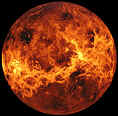
CLASS F - GEO-METALLIC

CLASS G - GEO-CRYSTALLINE

CLASS H - DESERT

CLASS I - GAS SUPERGIANT

CLASS J - GAS GIANT

CLASS K - ADAPTABLE

CLASS L - MARGINAL

CLASS M - TERRESTRIAL
(Minshara
Class)

CLASS N - REDUCING

CLASS O - PELAGIC

CLASS P - GLACIATED

CLASS Q - VARIABLE

CLASS R - ROGUE

CLASS S/T - NEAR STAR

CLASS Y - DEMON

The classifications in The Richter Scale of Cultures is not necessarily an
in-order listing of power per se, although that usually is the case.
Attributes like planetary government and non-aggressiveness are factored
in.
Ratings higher than our own (N) are extremely speculative since more
advanced beings and races are not always forthcoming about themselves and
we usually have no way of covertly or openly studying them.
AAA
No Known Intelligent Indigenous Life-Forms
Prehistoric Age (No Tools)
Primitive Space Dwelling
Stone Age
Primitive ( RESTRICTED - No contact permitted)
Agricultural Age
Metal Age
Scientific Intelligence With No Tools
Scientific Age
Pre-Industrialization
Steam Age
Electric Age
Liquid Fuels Age
Atomic Age
Space Age
Conscientious Space Age
Fusion Age
Planet Age
Star Age
Expansion Age
Introversion Age
Enlightenment Age
Power Age
Ion Age
Ion Age ( RESTRICTED - No contact permitted)
Pre-Technocracy Age
Technocracy Age
Technocracy Age ( RESTRICTED - No contact permitted)
Civil Technocracy Age
Civil Technocracy Age ( RESTRICTED - No physical contact permitted)
Space Dwelling Civil Age
Techno-Power Age
Super Techno-Power Age
Space Dwelling Super Techno-Power Age
Cloaking Age
Exploratory Age
Transformation Age
Illusory Age
Illusory Age ( RESTRICTED - No contact permitted)
Dimensional Age
Altering Age
Galactic Age
Galactic ( RESTRICTED - No Contact Permitted)
Pre-Non-corporeal
Non-corporeal Age
High Omnipotence Age
